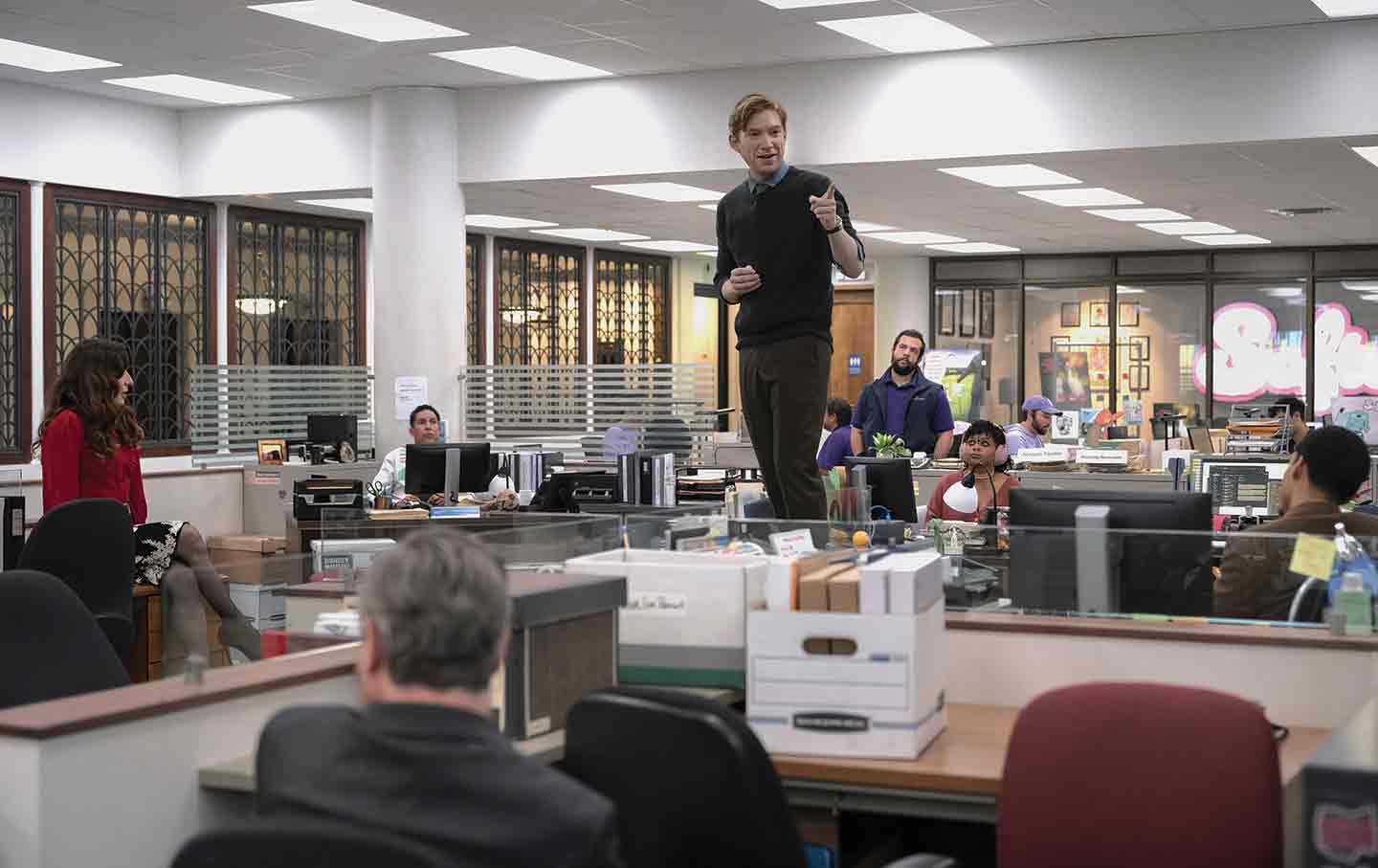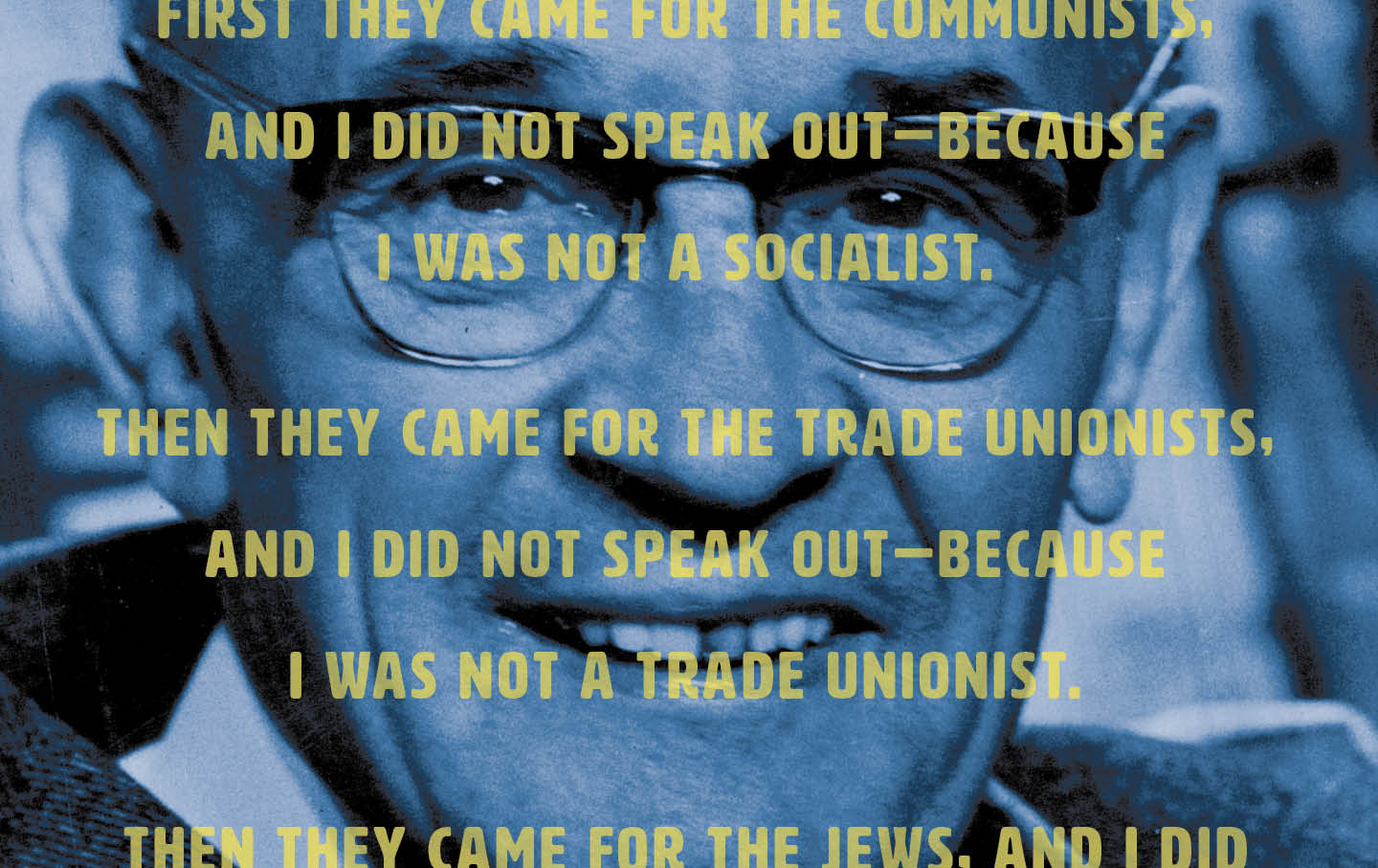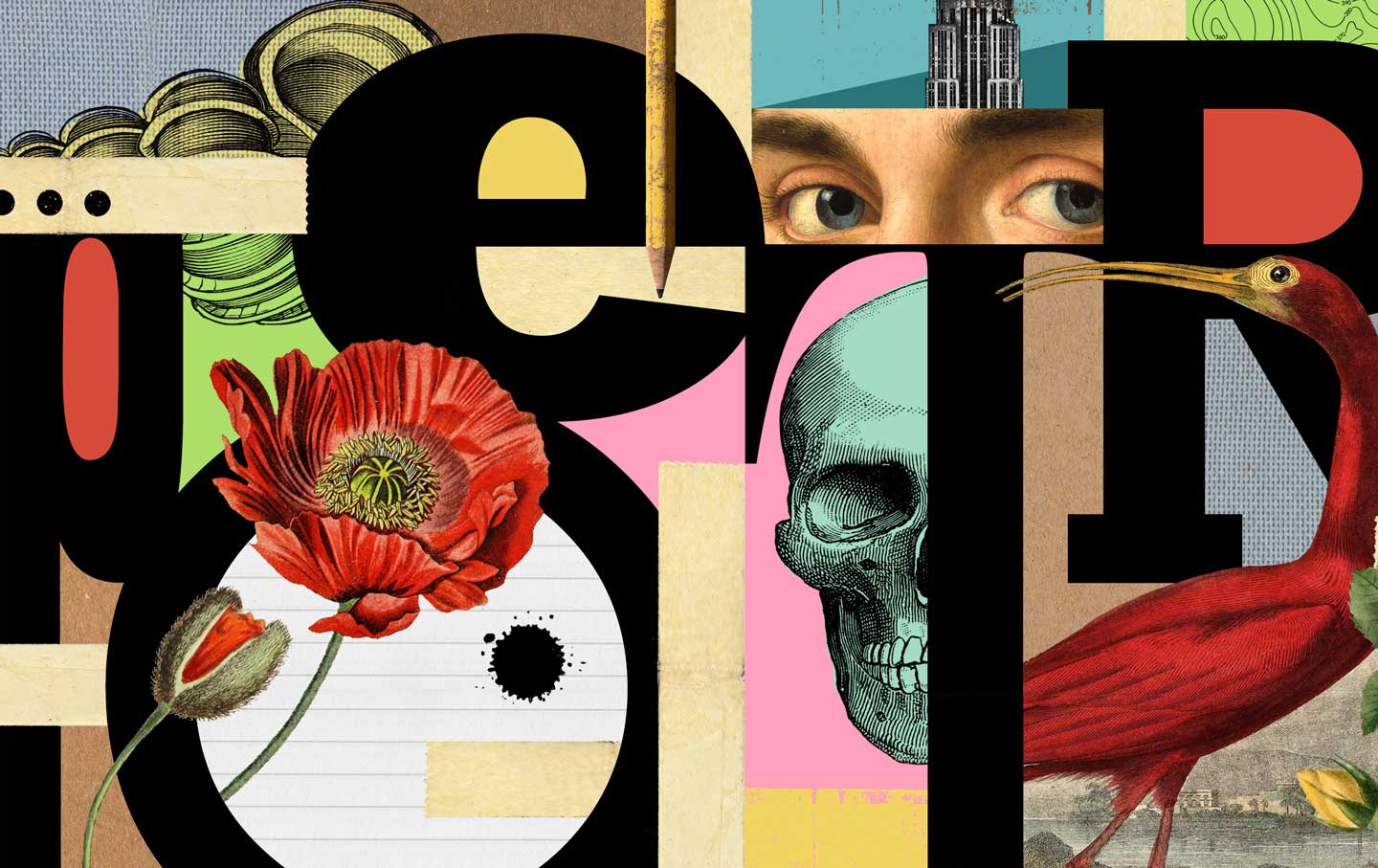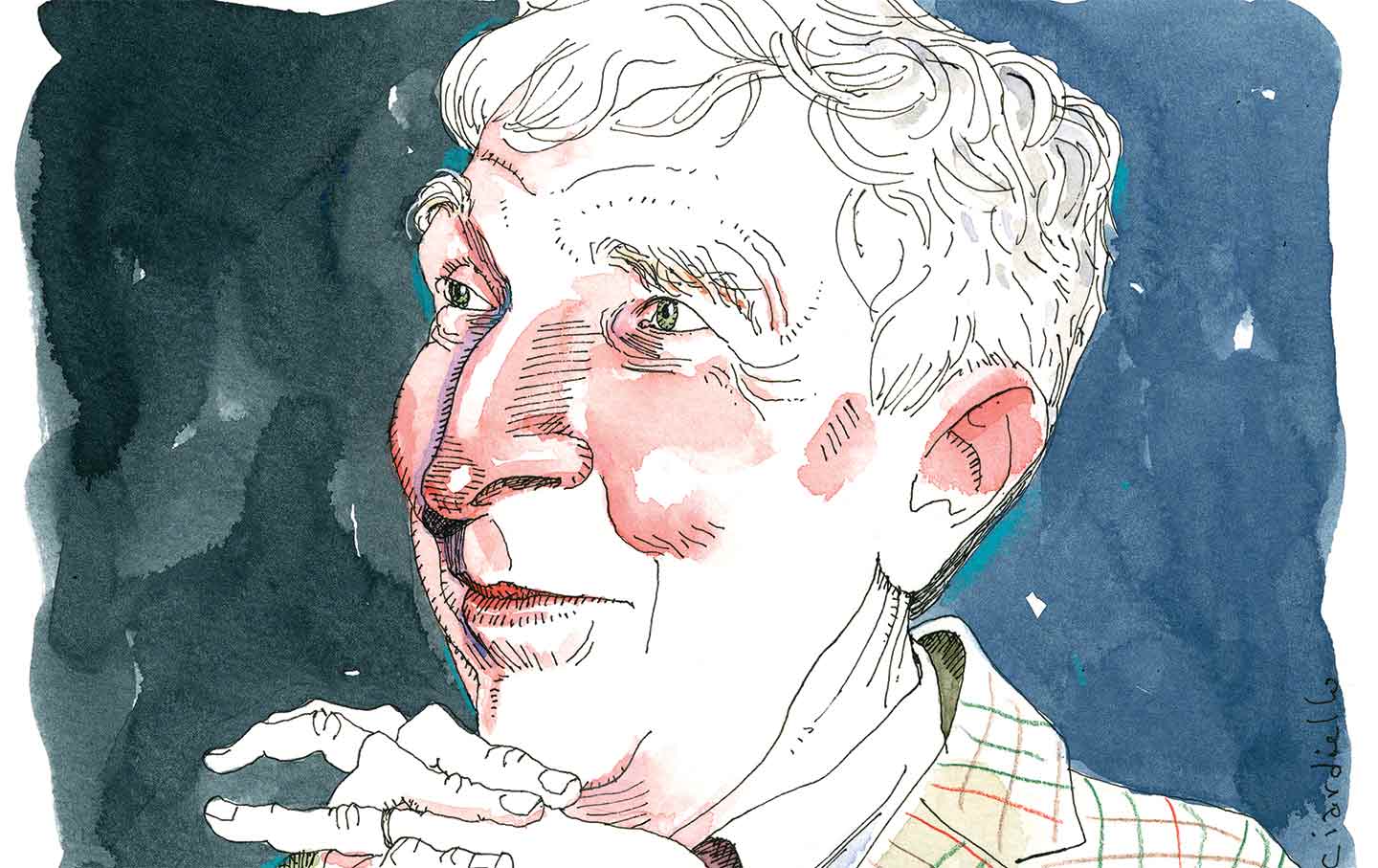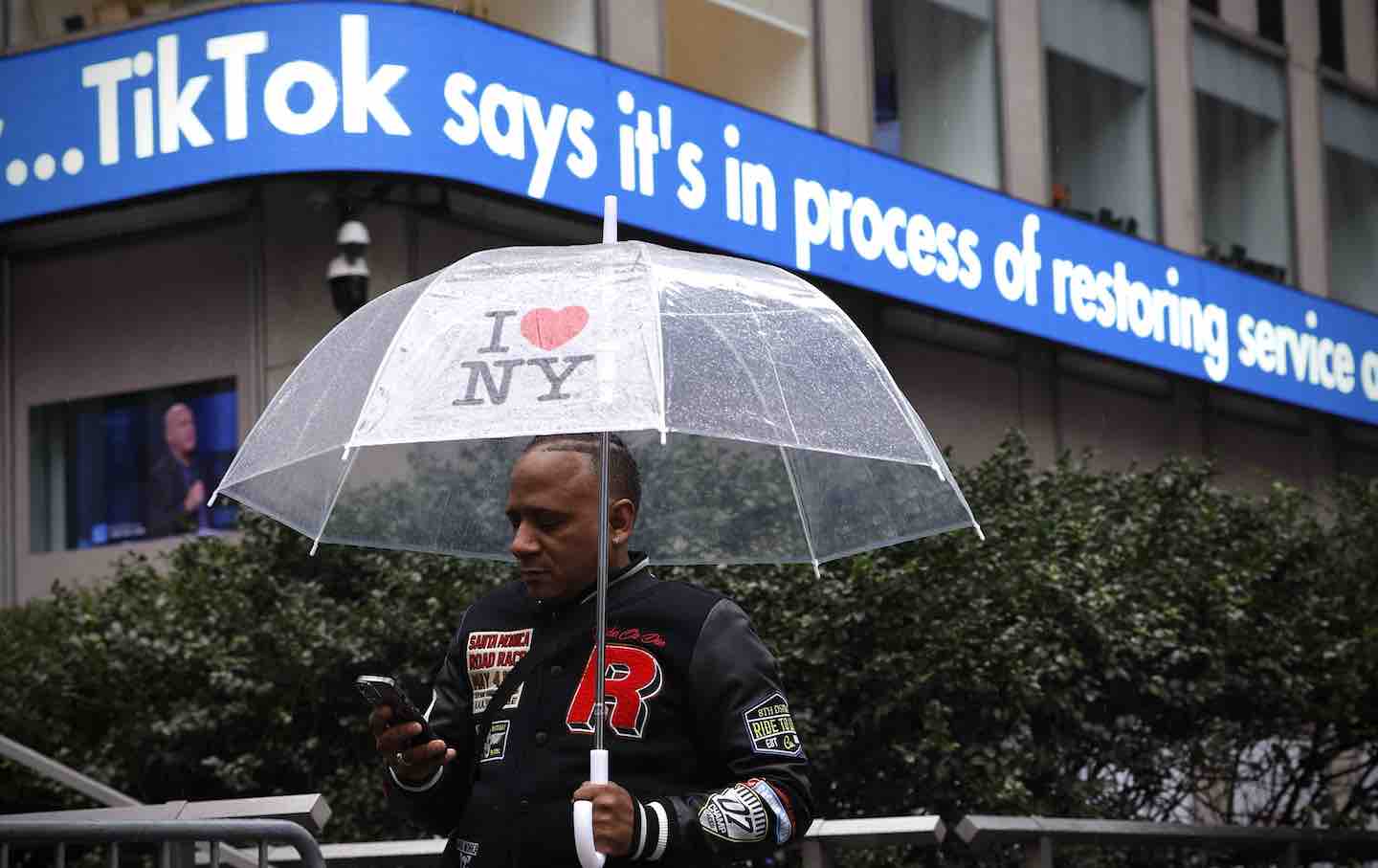The Perils of a Post-Racial Utopia
In Nicola Yoon’s One of Our Kind, a dystopian novel of a Black upper-class suburb’s secrets, she examines the dangers of choosing exceptionalism over equality.
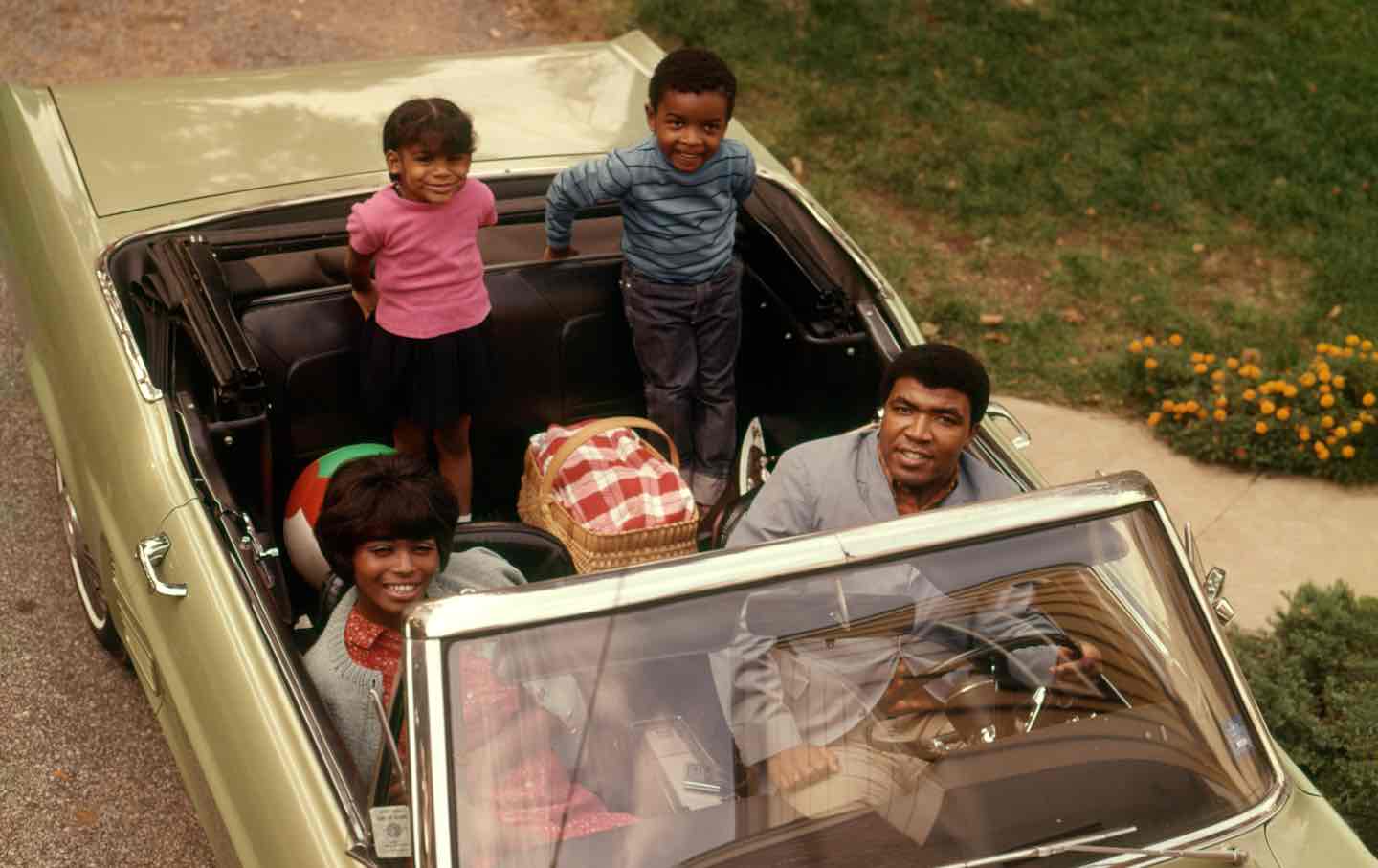
An African American family seated in a convertible, 1972.
(Photo Media / ClassicStock / Getty Images)
Years ago, a friend of a friend who had just bought a home told me that the biggest difference between renting and owning was that cops now treated him with respect. He and I are both Black, so I immediately knew what he meant. In countless contexts, our presence is treated as disruptive. This is what Jay-Z gets at when he raps, “We ain’t even ‘posed to be here” on “Niggas in Paris,” a song about the disorientation of Black success. On his property, this acquaintance was seen as unsuspicious, his perceived threat level deescalated to “taxpayer.” He sounded relieved, but also apprehensive. The police in his neighborhood might respect him, but what about those a few blocks away? Moreover, did he even want to be treated better just because he had a mortgage?
Nicola Yoon’s novel One of Our Kind dwells in this nervous headspace, exploring what happens when Blackness does not challenge the social order. Set in the fictional and opulent Los Angeles suburb of Liberty, the story follows an upper-class Black family who purchase a house there and uncover a conspiracy.
Books in review
One of Our Kind
Buy this bookJasmyn and Kingston (“King”) Williams initially view Liberty as a refuge. The gated community features an aquatic complex, a Black history museum, a sculpture garden with statues of luminaries like W.E.B. Du Bois and Stokely Carmichael, a theater, and a Wellness Center. Residents, the police force, teachers, and local employees are all Black, a homogeneity that the Williamses see as a reprieve. Though Jasmyn rebuffs King when he calls Liberty a “Black utopia,” she slips into reverie as they drive along its moneyed streets before they move in, envisioning their home-to-be as an oasis for their son Kamau and his unborn brother. Resting her hand on her pregnant stomach, she thinks, “This place of Black splendor will be all he knows…growing up, surrounded on all sides by Black excellence…will help them both flourish, secure in the knowledge of their own beauty and self-worth.”
But what exactly is being incubated in Liberty, and in any space that couches freedom in exclusion? Yoon turns this serious question into a pulp thriller, plotting the Williamses’ matriculation as a twisty study of Black strivers. The book’s reveal—the uncomfortable circumstances that allow a place like Liberty to exist—isn’t surprising. This is a story set in the suburbs, which, like the border and the frontier, has become a stock setting for unearthing the horrors that lurk beneath the American idyll. But the lack of fresh imagery is balanced by Yoon’s layered characterizations. Though One of Our Kind skewers “these post-racial Blacks,” as Jasmyn says, Yoon also uses them to pose deeper questions about upward mobility and sanctuary. Black excellence, the book contends, is a gilded trap.
Yoon structures the book around Jasmyn’s budding realization that Liberty isn’t what it seems. The brief chapters move briskly, and Yoon abuts them with excerpts from fictional web pages and publications like Mahogany Magazine and The Brooklyn Informer to quickly contextualize the people the Williamses meet as they get settled: doctors, lawyers, entrepreneurs.
King, a venture capitalist and the breadwinner of the family, fits right in and makes friends at the Wellness Center, the community’s hub. Jasmyn, a public defender and activist against police violence, doesn’t fare so well. She expects her neighbors to share her strong sense of justice, but they don’t. A woman who brings over cookies to welcome the Williamses to Liberty curiously says, “I didn’t know they still made those” when she sees Jasmyn’s T-shirt, which displays a raised fist and the words “Black Power.” Later, a fellow parent at Kamau’s school admits, “I don’t watch those,” when she finds Jasmyn crying over a video of a police shooting that left a Black father dead and his daughter hospitalized. Jasmyn walks away from these encounters concerned that Liberty will deracinate her family. But King assures her that wealth won’t make them forget their humble origins. “That’s not going to happen to us,” he says, a sentiment he repeats as the odd, alienating interactions increase.
The plot kicks into motion when Jasmyn finally makes a friend and they plan to start a Black Lives Matter chapter. “Around here, it will be easy,” Jasmyn says to Keisha, a middle school teacher. She’s wrong again, learning as she goes door to door that the community is more committed to self-care than activism. At one house, the owners are out when Jasmyn stops by, and their teenage son tells her that his parents spend all their time at the Wellness Center. Another home she visits is a miniature temple to luxury and health, boasting a showy swimming pool and a guesthouse with a salon and massage room. Owned by two plastic surgeons who cofounded Liberty, the house exemplifies the ways the community conflates excellence and indulgence.
Out of frustration and curiosity, Jasmyn eventually heads to the Wellness Center. The ultimate symbol of Liberty’s status obsession, it sits at the top of the community, behind two checkpoints with armed guards. Jasmyn initially views the excessive security as theatrical, but once inside she feels confined. She’s attended by escorts everywhere she goes; the spa treatments have pretentious and nonsensical names (“Cranial sacral reiki healing attunement”); and at one point she hears a piercing scream, which Yoon describes as “the sudden, treacherous violence of fresh grief.” But the staff assures Jasmyn that such outbursts are normal for some of the treatments and that King is waiting to meet her after her stay, which she finds comforting. He “comes here all the time and he’s never once said he found it strange or unsettling,” she thinks to herself. She leaves the premises unscathed, but tellingly, she and Keisha end up recruiting just one person to the BLM chapter, and it’s not King.
Though the plot is engrossing, Yoon’s writing isn’t especially stylish or distinctive. The Wellness Center’s robes and attire are frequently described as white, a far too easy metaphor. Chemically relaxed hair is described multiple times as “bone-straight,” another obvious metaphor for whiteness. Speaking of hair, the characters’ styles are generally limited to straight, bald, or “Afro,” descriptions that only scratch the surface of the rich lexicon of Black do’s. Because the story hinges on Jasmyn’s perception of the world, when the writing is repetitive and flat, Liberty and its residents can feel a little too formulaic.
The book’s most compelling moments come when Jasmyn, who is often self-righteous and judgmental, feels uncertain and unmoored. In one scene, a housewarming party at her house with the Wellness Center crowd and her BLM pals goes off the rails when a guest complains about looting at protests of the police shooting. Jasmyn “feels as if she’s been slapped” hearing that kind of cable-news talking point in her house, especially from a Black person. In another scene, Jasmyn tours a home in Baldwin Hills with Keisha, who has decided to leave Liberty. The neighborhood, nicknamed the “Black Beverly Hills” (a title it shares with neighboring Ladera Heights, which is famously memorialized in a Frank Ocean song), is also wealthy. But “compared with the expansive splendor of the houses in Liberty,” Jasmyn thinks, “it seems quaint and shabby,” and she wishes, “just for a moment, that she could see it with her old eyes.” Upward mobility, Yoon suggests, is both a yearning for a better life and a dissociation from the self and community.
As Jasmyn gets to the bottom of Liberty’s secret, her struggle to reconcile her circumstances with her convictions is most pronounced in her home life. King stays at the Wellness Center late into the night, and he waves away her concerns that something is off. It turns out, Jasmyn learns, that he’s in on the conspiracy, which involves Liberty’s leaders using shady real estate deals and some kooky medical procedures to turn Black people white and give them new identities and lives. Far from a Black utopia, Liberty is a way station for upwardly mobile Black people who want to leave the race. This is not an especially shocking twist given Yoon’s many nods to Get Out and The Stepford Wives, but the excess of the scheme fits the decadence and desperation of Liberty as a project. The Black intelligentsia, as embodied by the wellness cabal, views freedom as a commodity rather than a right. Instead of using their means to oppose racism, they commit their wealth to investing in literal whiteness.
This fantastical and grim “passing” plot harks back to George Schuyler’s classic satire Black No More, as well as contemporary works like We Cast a Shadow and The Other Black Girl. The story fits firmly within the “racial metamorphosis” trope that has emerged in the past decade as artists have used monstrosity and disfigurement to symbolize racism. But One of Our Kind is not really a satire or parody. Its characters are not caricatures or monsters. Beneath the wellness fetish and conservatism of Liberty’s Black elites is a relatable fatigue with the work of resisting racism, which is often thankless. Though it takes noxious levels of delusion and privilege to agree to “Not give up. Give in,” as Liberty’s billionaire ringleader tells Jasmyn, Yoon’s point is that this fatalism is familiar.
Parents who move to gain access to better schools for their kids, homeowners who oppose transients or renters in their neighborhoods, and nativists like those in the ADOS movement, who support reparations only for Black Americans with explicit ties to slavery, all accommodate the status quo, advancing their own interests at others’ expense. As Jasmyn learns by the book’s tragic end, that’s exceptionalism, not excellence. Knowing the difference can be a matter of life and death.

